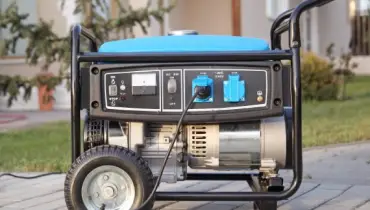
Running a home generator safely is crucial to protect your property and loved ones. Rainbow Restoration highlights key mistakes to avoid.
|
Owning a portable generator can be a lifesaver, especially if you live in an area that regularly experiences storms and inclement weather. But to ensure the power your generator creates is reliable and consistent—and that you stay safe while using it—there are some things you should never do. Before you use your generator again, make sure you are familiar with how to keep it in good working order and what dangers you should avoid.
Failing to Do Proper Maintenance
Just a few simple maintenance routines will ensure that your generator is always ready when you need it. Check out the owner’s manual to find out what type of oil your generator requires and how often it should be changed. Be sure to mix in stabilizer (available at most home improvement and hardware stores) before fueling to prevent the carburetor from gumming up. If your generator sits unused for more than 6 months, empty it out and fill it with fresh, stabilized fuel. Don’t worry, the fuel you empty won’t go to waste—you can put it into your car’s gas tank!
Operating in Your Garage
Just like any gasoline engine, running a portable generator produces dangerous, odorless, and colorless carbon monoxide fumes. Running the generator in the garage can allow these fumes to seep into the house, resulting in headache, upset stomach, chest pain, unconsciousness, and even death. Even if your generator is outside, it can be dangerous to run it near open windows or doors. Keep a running generator in a safe place away from window and doors (if possible), with the exhaust positioned away from your home.
Operating During a Storm
Most portable generators come with instructions that warn consumers not to run them in the wet weather. As a result, it’s best to wait until the storm is over before you run your generator. However, if you must use a generator during inclement weather, make sure it’s at least 25 feet away from your house, on a dry, even surface, with at least 5 feet of clearance on each side. Ideally, create a place to run a portable generator that’s under an open, canopy-like structure to protect it from any additional weather.
Refueling When the Generator’s Running
If a power outage goes on for several hours, you’ll eventually have to fill the tank of your portable generator with more gas. To be safe, turn off the generator and allow it to completely cool down before refueling. Why? Because it very dangerous to pour gasoline into a hot engine and it’s even worse to try to refuel while the generator is still running. Heat or friction can ignite spilled gasoline and cause your generator to explode.
Related Topic: How to Prepare Your Home for Hurricane Season
Poor Quality Gas
Contrary to popular belief, gasoline can go bad if stored too long. So, if you’re storing gasoline to make sure you have fuel for your portable generator when you need it, be sure to replenish it regularly or use additives to help keep it fresh.
Using the Wrong Extension Cords
Most portable generators require use of an outdoor grounded extension cord of at least 12- to 14-gauge, with a GFCI functionality. Older or smaller gauge extension cords can allow electricity to flow where it shouldn’t, resulting in dangers like electrocution or fire. Since the length of an extension cord and the electrical load amperage can affect how much the extension cord can handle, be sure to look up your generator’s specific extension cord requirements in the user’s manual.
Connecting to Your Home’s Service Panel
Connecting your portable generator directly to your home’s service panel, creates the risk of starting an electrical fire. Of note it’s illegal in most states because it can harm utility workers. Also, the residual energy can travel backwards through the electrical lines when your power comes back on, causing higher-than-normal voltage that could electrocute anyone who touches the generator. If you’re going to use a generator, be sure to hire an electrician to install a manual transfer switch that acts as a conduit between the electrical grid and the generator and safely changes the source of power for your home.
Is Your Home Prepared for Severe Weather?
Even though severe weather can be unpredictable, you can make sure your home is ready. In addition to your generator, be sure to have an emergency kit with food, water, flashlights and anything else you might need if you’re without power or basic services for 72 hours or more. Draw up a family communication plan so that every family member knows how to get in touch with each other and where to meet if you get separated. And after the severe weather is over, remember to contact Rainbow Restoration to provide clean up and home reconstruction services At Rainbow Restoration, restoration begins now!
